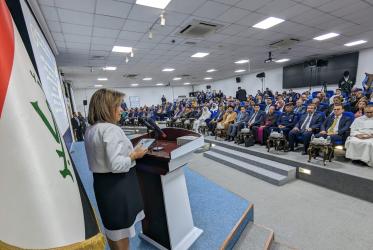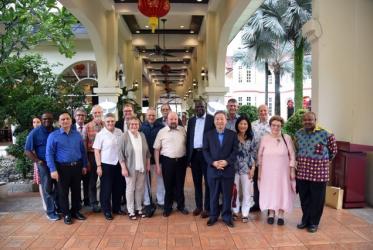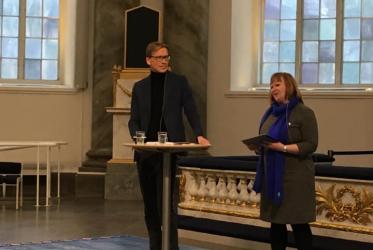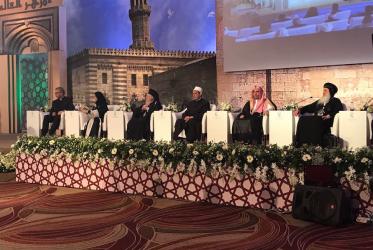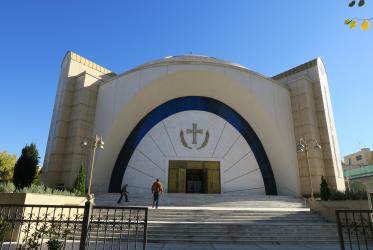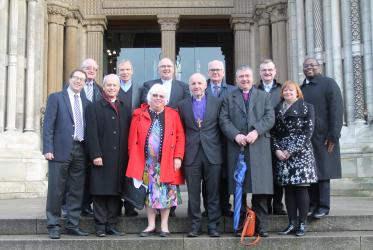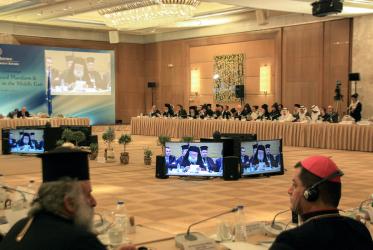Displaying 1 - 20 of 24
WCC honored with Bridge Builder Award 2021
02 July 2021
Role of religion being questioned in public event in Norway
14 August 2019
Shabbat dinner ‘helps humanize two sides of the story’
27 March 2019
Ecumenism is a sense of belonging
08 February 2019
#WCC70: Nathan Söderblom, ecumenical pioneer
29 August 2018
WCC delegation visits China
04 January 2018
WCC students study what makes a peace communicator
18 July 2017
Rebuilding a smashed church in Albania
23 December 2015
Orthodox church in Albania resurrected
23 December 2015
WCC delegation visits north Ireland and border barriers
02 December 2015
WCC visits Inter Faith Centre in Dublin
02 December 2015
Global Christian leaders concerned for persecuted Christians
09 November 2015
International conference addresses challenges in the Middle East
22 October 2015
